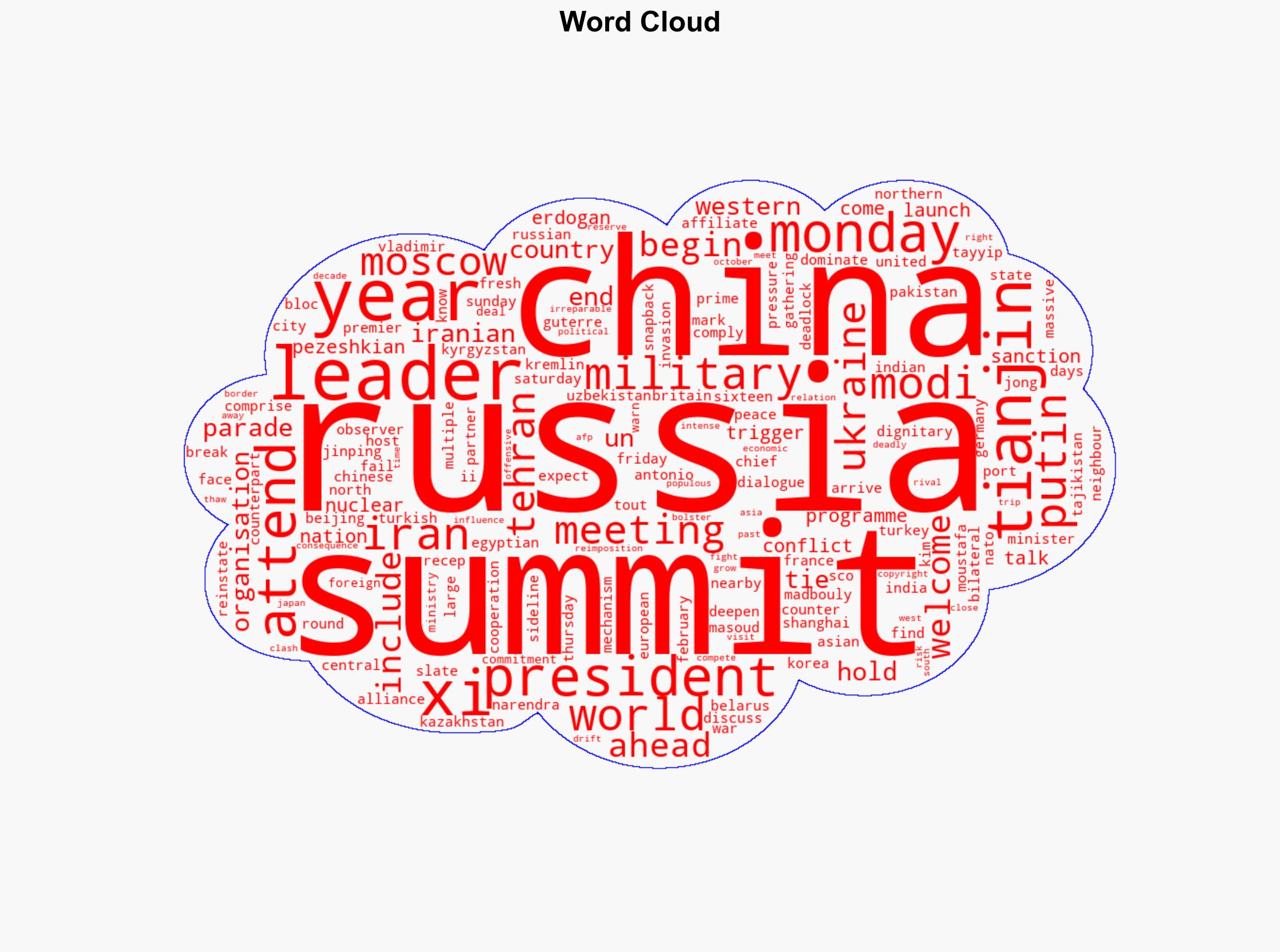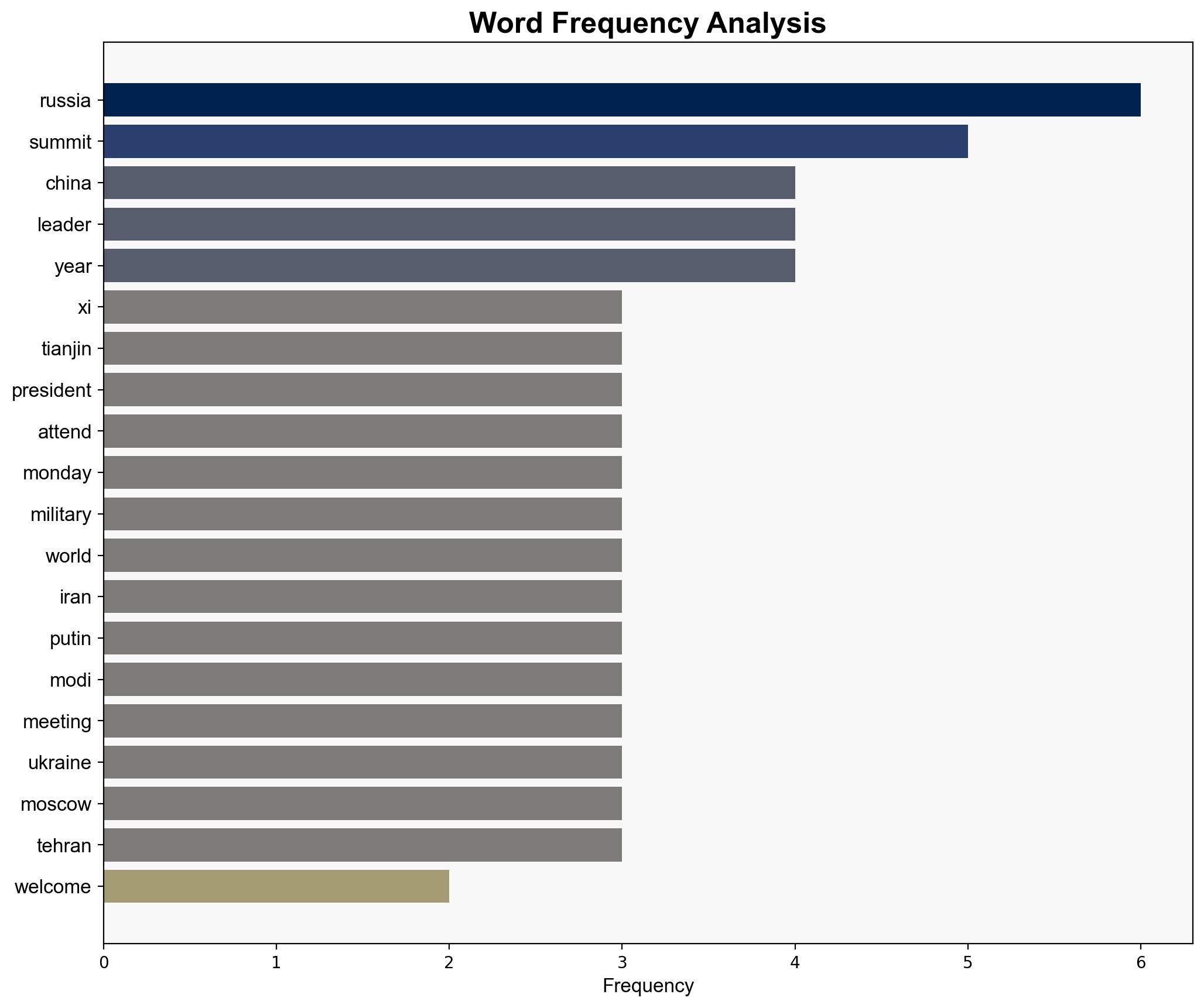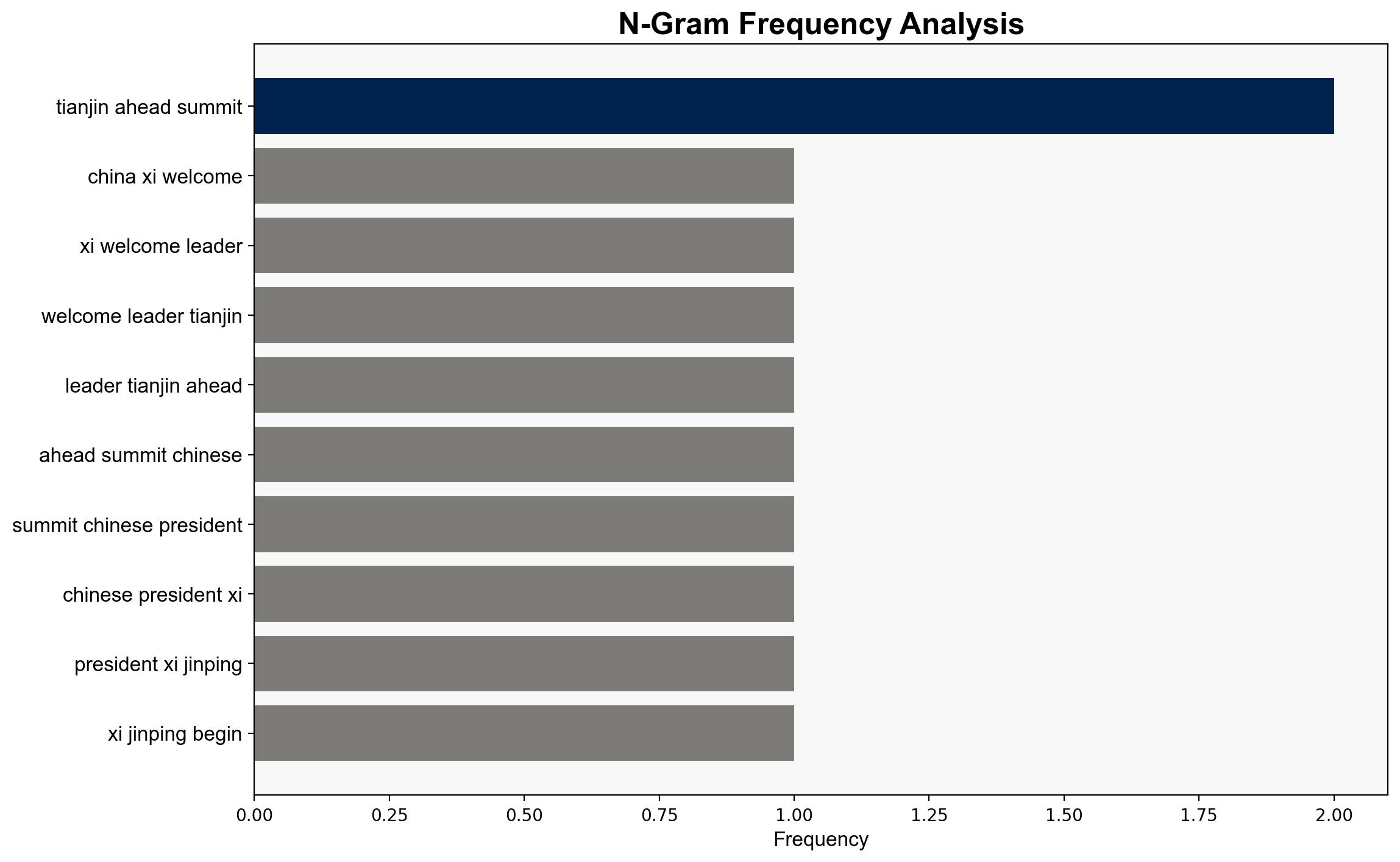China’s Xi Welcomes Leaders In Tianjin Ahead Of Summit – International Business Times
Published on: 2025-08-30
Intelligence Report: China’s Xi Welcomes Leaders In Tianjin Ahead Of Summit – International Business Times
1. BLUF (Bottom Line Up Front)
The summit in Tianjin, hosted by Xi Jinping, is strategically significant, potentially indicating a shift in global alliances and power dynamics. The most supported hypothesis suggests that China is leveraging the summit to strengthen its geopolitical influence and counter Western alliances. Confidence level: Moderate. Recommended action: Monitor developments closely, particularly bilateral meetings and discussions on the sidelines, to assess shifts in alliances and policy directions.
2. Competing Hypotheses
– **Hypothesis 1**: The summit is primarily a diplomatic effort by China to consolidate its influence within the Shanghai Cooperation Organisation (SCO) and counterbalance Western alliances such as NATO.
– **Hypothesis 2**: The summit serves as a platform for China to mediate and potentially de-escalate regional conflicts, such as the Ukraine conflict and Iran’s nuclear program, enhancing its role as a global peacemaker.
Using ACH 2.0, Hypothesis 1 is better supported due to the presence of key leaders from countries with strained relations with the West, and the emphasis on deepening ties with Central Asian states. Hypothesis 2 is less supported as there is limited evidence of successful mediation outcomes from past engagements.
3. Key Assumptions and Red Flags
– **Assumptions**: It is assumed that the presence of leaders like Vladimir Putin and Recep Tayyip Erdogan signifies an alignment against Western influence. Another assumption is that bilateral meetings will result in tangible agreements.
– **Red Flags**: The lack of explicit outcomes from past summits and the potential for symbolic gestures rather than substantive agreements. The absence of Western leaders may indicate a deliberate exclusion or self-exclusion, impacting the summit’s global perception.
4. Implications and Strategic Risks
The summit may solidify a bloc that challenges Western economic and military influence, potentially leading to increased geopolitical tensions. The involvement of countries like Iran and North Korea could exacerbate existing conflicts, particularly if new alliances embolden these nations. Economically, a shift towards a China-centric bloc could impact global trade dynamics and cybersecurity threats, as technological cooperation among these nations may increase.
5. Recommendations and Outlook
- Monitor bilateral meeting outcomes for signs of new alliances or agreements that could alter regional power balances.
- Engage in diplomatic outreach to key summit participants to understand their strategic objectives and mitigate potential conflicts.
- Scenario Projections:
- Best: The summit results in de-escalation of regional conflicts and enhanced global cooperation.
- Worst: Strengthened alliances lead to increased geopolitical tensions and economic decoupling.
- Most Likely: Incremental strengthening of non-Western alliances with limited immediate impact.
6. Key Individuals and Entities
Xi Jinping, Antonio Guterres, Moustafa Madbouly, Vladimir Putin, Narendra Modi, Kim Jong Un, Masoud Pezeshkian, Recep Tayyip Erdogan.
7. Thematic Tags
national security threats, geopolitical alliances, regional focus, diplomatic strategy





